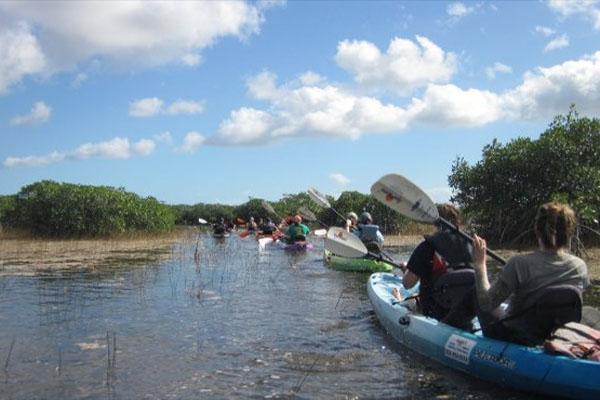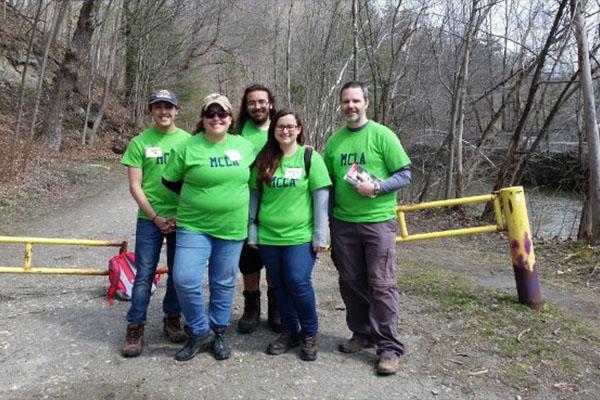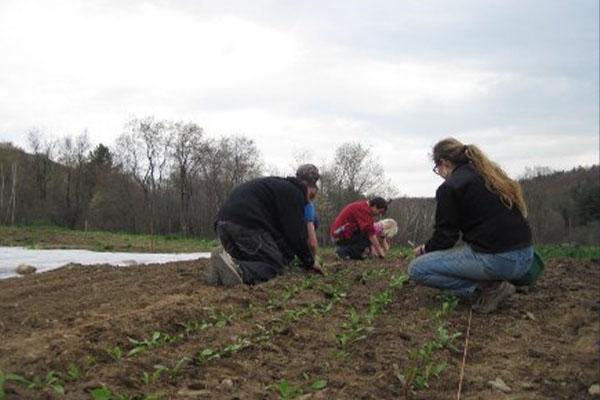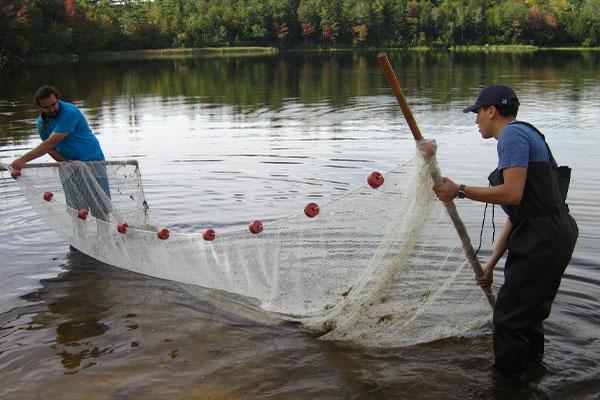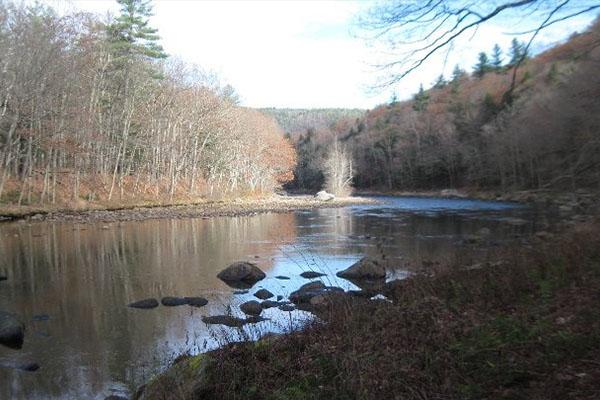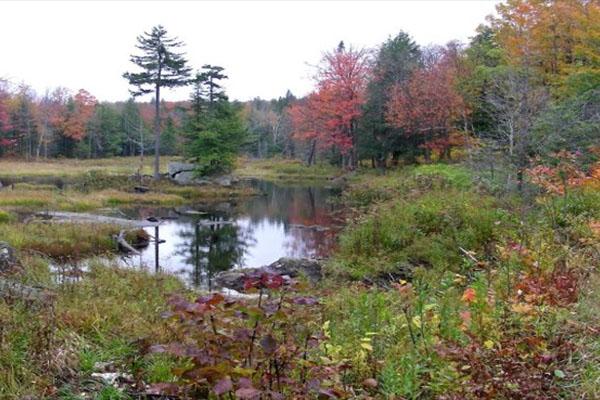
Our outdoor learning classroom
MCLA is adjacent to a diverse array of terrestrial and aquatic ecosystems available for study both in and out of the classroom. This creates unique opportunities for students interested in Environmental Studies.
MCLA Research Forest
Our own 60 acre, mature second growth mixed hardwood forest is used for teaching, research and recreation. The Environmental Studies Department uses this site for ongoing research, ecological monitoring, outdoor classes and student-led projects. The trail network in the forests connects to the Windsor Lake Park trails, which can be reached at the top of Bradley Street, which is about a 0.4 mile walk from the MCLA residence halls.
Our campus is embedded in the heart of the Berkshire Mountains. Our small college town is literally surrounded by 10,000 acres of some of the most pristine forests in New England. We regularly use these surrounding forests for teaching and research opportunities. For instance, students in Environmental Studies classes may sample fish at Clarksburg State Park, explore old growth forests in Mohawk Trail State Forest, visit the boreal forests on Mt Greylock, mistnet songbirds on the flood plains of the Hoosic River, use trail cameras to sample deer and bears in forests protected by land trusts, snowshoe into Moran Wildlife Management Area to look for overwintering birds, and many other field activities in the abundant natural areas surrounding MCLA. Because our campus is in a small town New England town, we are quickly able to reach a large variety of habitats and ecosystems each week during our classes.
There are several nature and education centers with which we collaborate for courses and at which students can complete internships related to environmental education or land management. Some of these nature centers also have captive animals where students can learn about animal husbandry and use of animals in environmental education. Nearby nature centers include the Williamstown Rural Lands Foundation’s Sheep Hill, Massachusetts Department of Conservation and Recreation visitor centers, Southern Vermont Natural History Museum, MassAudubon’s Pleasant Valley, Berkshire Bird Paradise and Dyken Pond. Students with federal work study awards can apply to earn their work study award at MassAudubon’s Pleasant Valley Sanctuary.
The Environmental Studies Department is located in the Feigenbaum Center for Science and Innovation (FCSI), a state-of the art teaching and research facility on the MCLA campus in North Adams, Massachusetts. We have indoor teaching and research labs where students can complete research projects that involved water quality testing, bacterial testing, sample preparation, and natural history specimen identification and preparations. We collaborate with MCLA’s Biology and Chemistry Departments on lab-based testing, teaching, and research projects related to environmental microbiology and environmental chemistry. Our natural history collections include study skins of birds, mammal and other natural artifacts that are used in classes such as Ornithology, Nature of New England and Natural Communities.
Our students complete a diverse array of internships in a variety of environmentally related jobs. While students can complete internships in other locations and at other times, there are many internship sites near the MCLA campus that make completing a part-time internship while also taking classes during the semester feasible. Student can even complete internships on campus through positions that involve taking care of the live animal collections, working as field and lab research technicians, implementing sustainability initiatives, and other tasks. Off campus, but still nearby, students have worked with MassAudubon, The Nature Conservancy, The Trustees of Reservations, the Berkshire Natural Resources Council, the Hoosic River Watershed Association, local boards of health, wildlife rehabilitators, photovoltaic firms, sustainable farm businesses, Massachusetts Division of Fisheries and Wildlife, Bennington Fish Hatchery, and many other organizations.
While the Berkshires are truly an ideal place to pursue Environmental Studies, we also recognize the value and importance of exploring regions beyond the Berkshires. We offer several field intensive courses with multiple day excursions that explore other ecosystems including the Adirondacks, the Everglades and South Florida, Arizona’s deserts and the marine ecosystems of the Caribbean which is offered through the Biology Department.
